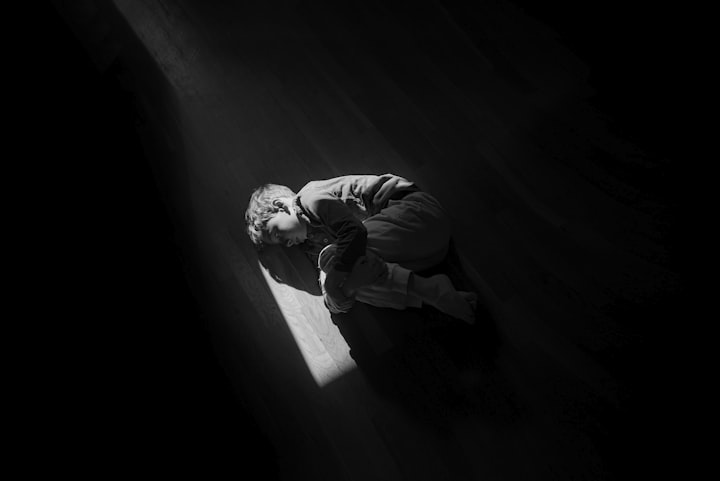The silent struggle
The impact of parenting

In the delicate dance of parent-child relationships, communication serves as the backbone, providing a sturdy framework for understanding, growth, and emotional well-being. However, some parents, knowingly or unknowingly, choose a path of silence and malice over open dialogue when it comes to addressing their child's behavior. This preference for the silent treatment can have profound and detrimental effects on the child, leading to a toxic environment that fosters feelings of isolation, despair, and eventually, depression.
Communication is the lifeblood of any healthy relationship, and the parent-child dynamic is no exception. When parents opt for silence and malice as their primary mode of interaction with their child, they inadvertently erect barriers that impede the flow of understanding and emotional connection. In lieu of addressing issues or concerns, this approach allows grievances to fester beneath the surface, creating an atmosphere of tension and unspoken resentment.
Children, in their formative years, are highly impressionable and sensitive to the emotional cues of their parents. When met with the chilling silence of disapproval instead of constructive communication, they may internalize the perceived rejection, attributing it to their own inadequacies. This lack of verbal exchange denies the child the opportunity to comprehend and rectify their mistakes, hindering their emotional and behavioral development.
The insidious nature of the silent treatment lies in its ability to erode a child's self-esteem gradually. The unspoken disapproval becomes a constant companion, casting shadows on their sense of self-worth. In the absence of constructive feedback, children may struggle to discern right from wrong, and their confidence crumbles under the weight of unaddressed issues.
Furthermore, the silent treatment often goes hand in hand with the cultivation of malice. Instead of fostering an environment of open dialogue, parents may choose to harbor grudges and resentment, allowing negativity to fester within the familial unit. This toxic atmosphere becomes a breeding ground for emotional discord, making it difficult for the child to thrive and develop in a healthy, nurturing environment.
As the silent treatment persists, the child's mental health becomes increasingly compromised. The emotional isolation imposed by the lack of communication leads to feelings of loneliness and abandonment. Unable to express themselves or seek guidance, children may internalize their struggles, fueling a sense of helplessness and despair.
The cumulative impact of prolonged silence and malice is a fertile ground for the growth of depression. Children, lacking the emotional support and guidance essential for their well-being, may find themselves overwhelmed by a sense of hopelessness. The untreated emotional wounds fester, creating a breeding ground for mental health issues that can persist into adulthood.
Depression in children often manifests in various ways, such as changes in behavior, academic performance, and social interactions. The child may become withdrawn, exhibit signs of apathy, or even engage in self-destructive behaviors as a coping mechanism for their unaddressed emotional turmoil. The seeds of depression sown in childhood can have lasting repercussions, affecting the individual's ability to form healthy relationships and navigate life's challenges.
Breaking the cycle of silence and malice requires a concerted effort from parents to prioritize open communication and constructive dialogue. It necessitates a shift in mindset, recognizing that addressing issues directly and transparently is crucial for the child's emotional well-being. Instead of resorting to the silent treatment, parents should actively engage with their child, providing guidance, understanding, and support.
Effective communication involves not only expressing concerns but also actively listening to the child's perspective. By creating an environment where the child feels heard and understood, parents can foster a sense of security and trust. This, in turn, enables the child to develop healthy coping mechanisms, resilience, and a positive self-image.
It is imperative for parents to acknowledge the potential harm caused by the silent treatment and malice, taking responsibility for their role in the dynamics of the parent-child relationship. Seeking professional help, such as family therapy or counseling, can be instrumental in breaking the cycle of toxic communication patterns and fostering a healthier, more supportive family environment.
In conclusion, the silent treatment and the cultivation of malice within the parent-child relationship can have far-reaching consequences on a child's mental and emotional well-being. This toxic dynamic hampers the child's ability to thrive, leading to feelings of isolation, despair, and ultimately, depression. Recognizing the detrimental effects of such communication patterns is the first step toward breaking the cycle and creating a nurturing environment where open dialogue and emotional support can flourish.
About the Creator
Rit JOSEPH
My tales offer solace, inspiration, and a reflection of your journey. Emotions are universal; through storytelling, we connect, heal, and grow.






Comments
There are no comments for this story
Be the first to respond and start the conversation.